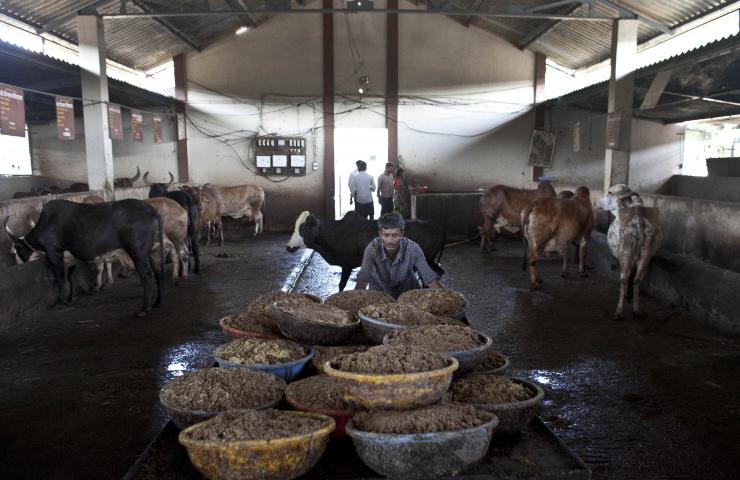Man Lynched To Death On Suspicion Of Eating Beef In Secular India
In this photograph taken on September 29, 2015, relatives mourn slain Indian villager Mohammad Akhlaq in the village of Bisada, a few 35 kilometres (22 miles) north-east of New Delhi, after his death at the hands of a mob in the northern state of Uttar Pradesh.
Farm worker Akhlaq succumed to his injuries, while his son Danish was admitted to a government hospital in what doctors called “critical” condition. “Before the announcement was finished, they reached our house, accused us of keeping cow meat, broke down our doors and started beating my father and brother”.
An angry mob dragged 52-year-old Muslim Mohammad Akhlaq from his bed and beat him and his son with sticks and bricks. Also that the announcements were made from the loudspeaker of a temple which provoked the residents of the village to rush towards Aqlaq’s house and alleged that the man had slaughtered a cow.
Police seized meat said to be mutton from the family’s fridge and sent it for forensic testing.
Six people have been arrested in connection with the incident and police are investigating who spread the rumour. One family was out, so the mob descended on the home of Mohammad Ikhlaq, according to NDTV.
“They also tried to molest me and hit my grandmother on her face”, Sajida added. “This was pre-planned. If they suspected we had slaughtered a cow, why did they not file a police complaint against us with the proof?”
Hindus consider cows to be sacred animals. Cow slaughter is banned in Uttar Pradesh.
While many Indian Hindus do not eat beef because they consider cows to be holy creatures – others, particularly people in the south or members of lower castes – as well as Christians and Muslims – do.
District magistrate NP Singh said: “If a digital war against communal harmony is initiated then the guilty will be punished”.
The subject has become more sensitive over the past year, with a conservative Hindu government in power in New Delhi and a growing number of states imposing stronger protections for cows and bullocks. “Even minor incidents of fights between children are taking on a religious hue”, says Asmat Khan, the headman of Kalonda, a neighbouring village.








